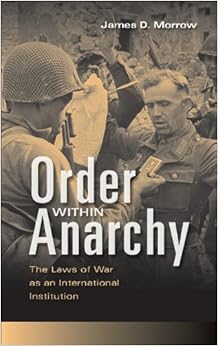Various commentators seem to be shocked by my claim that the president can refuse to enforce the immigration laws. They think that such an action would violate the Constitution. No lawyer does, aside from a few with idiosyncratic views about the Constitution. Let me see if I can explain why.
Last July 4, I took a stroll along the Chicago lakefront in my neighborhood. As far as the eye could see, ordinary people were setting off fireworks, and not just everyday firecrackers, but what seemed like commercial-grade fireworks that showered sparks on us from high in the air. Numerous police officers stood around and watched. Even though fireworks (beyond smoke bombs and sparklers) are quite illegal in Chicago, no one moved to make an arrest or even issue a warning.
This is a familiar example of executive discretion. Hundreds of people violated the law. The police did nothing about it. Why not? Maybe because they did not have enough resources. Maybe because the mayor thought arrests would be unpopular. Maybe because the police enjoyed the fireworks display. Who knows? It doesn’t matter. No one thinks that the city government behaved unconstitutionally though quite a few citizens complained. (This has been going on for many years.)
Obama’s (apparent) plan not to enforce immigration laws is just another example. His critics have worked hard to distinguish it from run-of-the-mill enforcement discretion that the Constitution places in the executive branch. Reihan Salam makes several attempts.
First, the president can use his law enforcement discretion to “husband enforcement resources” but only to advance the immigration law, and that’s not what he’s doing. But Chicago did not “husband enforcement resources” to advance “fireworks law.” It simply disregarded the fireworks ordinance. It husbanded resources for goals (for example, keeping order) that it deemed more important than stopping people from shooting off fireworks. There is no rule that enforcement discretion is somehow law-specific.
Second, Salam argues that the president can’t do what Congress didn’t intend. Congress didn’t intend to allow the president to give work permits to millions of illegal immigrants. True, but state and city lawmakers didn’t intend to allow Chicago police not to enforce the fireworks law. Or, to draw a closer parallel, to give fireworks permits to thousands of amateurs. The law reveals an intent that is exactly the opposite.
Third, the president can’t prospectively “suspend” the law. (He’s not suspending it–he can’t do that–but never mind.) Here we see a difference. The Chicago police do not announce in advance that it will suspend the law requiring people to obtain a license to shoot off fireworks. That the police are issuing “fireworks permits” hither and yon, akin to Obama’s work permits. But everyone knows that this is the policy. No one has explained why announcement of prospective action–which serves important rule-of-law values by informing the public of policy–is a defect rather than an improvement over the Bush era, where virtually no employer was ever punished for employing illegal immigrants but a policy of non-enforcement was never announced.
Question: How many employers were punished by the Bush administration in 2006 for employing illegal immigrants? Answer: zero. It’s true that he didn’t announce a policy of granting work permits to illegal aliens. But that was his policy. Why didn’t Salam argue then that Bush was violating the Constitution?
The truth is that a huge number of laws are simply not enforced. An old example that people used to cite are sodomy laws. They were on the books; they were occasionally used against rapists when a jury couldn’t be persuaded that the victim withheld consent. Sodomy laws were virtually never enforced against (otherwise) law-abiding people. All kinds of old laws sit on the books that no one bothers to enforce. And not just crazy old state laws. There are thousands of intricate regulatory laws governing industries of various sorts that are never or selectively enforced.
Environmentalists and other advocates have complained for decades about executive-branch policy (yes, explicit and prospective) of issuing rules under regulatory statutes like the Clean Air Act only if those rules pass cost-benefit tests. This policy was first implemented by Reagan in 1981. The policy is plainly one of under- or non-enforcement of the law, which contains no such cost-benefit test but rather requires strict regulation. Yet I’m guessing that Salam and Douthat don’t see this policy as an example of “domestic Caesarism.” Why not, exactly?
Or if you want still more examples, consider the well-recognized phenomenon of “regulatory forbearance” in banking law where banking regulators decline to shut down a sick bank despite its violation of capital-adequacy regulations because they think it will recover. Or consider the endless statutes that ban “loitering,” “disorderly conduct,” “breach of the peace,” and the like. If police had to literally enforce these laws, we’d all be in jail. So if you wonder why courts never try to force the executive branch to enforce the law, this is why.
All that is different about the immigration example is that it is currently a hot-button political issue. As Salam seems to recognize implicitly as his piece winds down, the president is (or may be) violating a political norm, not a constitutional norm. And for that reason his decision may be a bad idea, and perhaps it will backfire. But that doesn’t make it unconstitutional.

 This
This